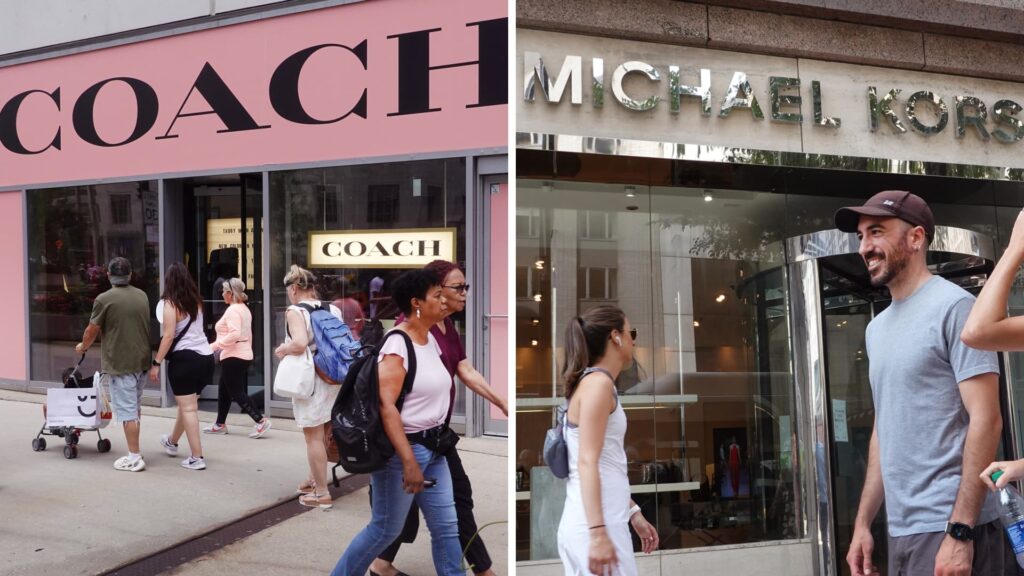
Pedestrians walk past a Coach store and a Michael Kors store.
Scott Olson | Getty Images
The U.S. Federal Trade Commission on Monday sued to block the $8.5 billion acquisition of Capri Holdings by Coach and Kate Spade’s parent company, Tapestry.
The move by regulators brings at least a temporary halt to a deal that would marry two major names in American luxury retail and put six fashion brands under a single company: Tapestry’s Coach, Kate Spade and Stuart Weitzman and Capri’s Versace, Jimmy Choo and Michael Kors. With the transaction, the luxury brands could be poised to better compete with European luxury names, such as Burberry and LVMH’s Louis Vuitton.
When Tapestry announced the proposed acquisition in August, CEO Joanne Crevoiserat told CNBC that the combined companies would be able to reach more customers across the globe. Together, the two companies would have over $12 billion in annual revenue and a presence in more than 75 countries.
The deal had been expected to close in 2024. In a financial filing on April 10, Tapestry said it had secured approval from regulators in Europe and Japan, but was still waiting for the approval of U.S. officials.
Both Tapestry and Capri have been under pressure, as consumers continue to be choosier with discretionary spending. Yet Capri, in particular, has been more vulnerable because of its heavier reliance than Tapestry on department stores and other wholesale retailers.
Led by Crevoiserat, Tapestry has raised the profile of Coach’s brand, attracted younger shoppers, and tried to lean on fashion and loyalty, rather than deep discounts, to drive higher sales and profits. The vast majority of Tapestry’s sales are through its own website and stores, with wholesale accounting for only about 10% of sales globally in the most recently reported fiscal quarter.
As of April 19, shares of Tapestry are up about 10% so far this year compared with the stock of Capri, which has fallen about 24% over the same period.
This story is developing. Please check back for updates.






